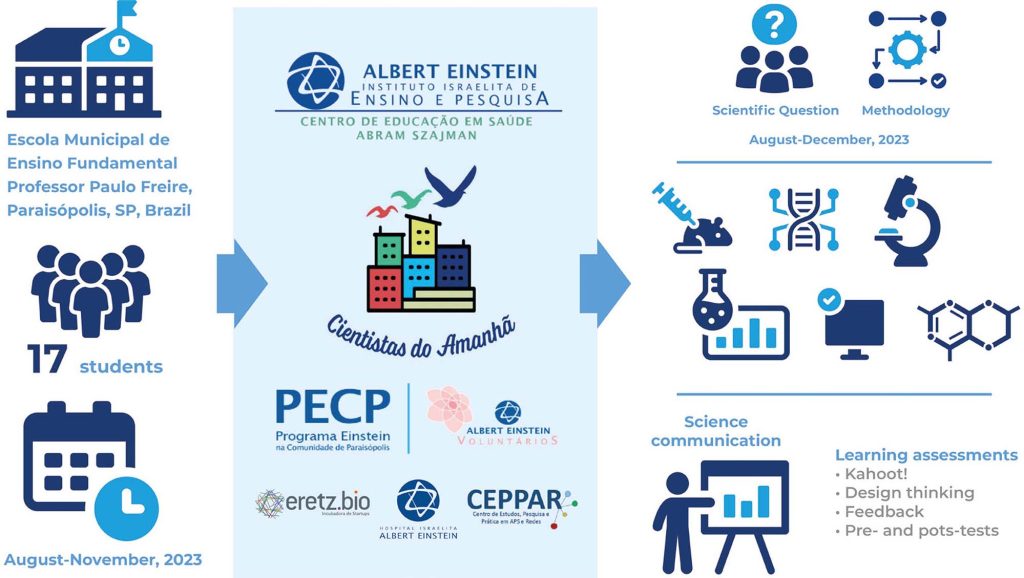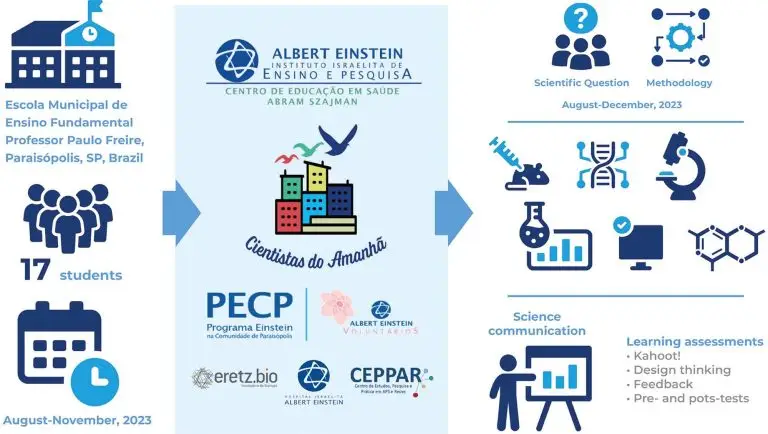einstein (São Paulo). 11/jul/2025;23:eAE1513.
Second Edition of the Scientists of Tomorrow/Cientistas do Amanhã Project: advancing scientific thinking, methodology, and equitable education
DOI: 10.31744/einstein_journal/2025AE1513
Highlights
■ Ensuring quality education, providing vocational training, and promoting communication technology, technical, and scientific programs are goals set by the United Nations to enhance learning opportunities for all.
■ Critical thinking, fostered through theoretical and practical activities, is essential for building relevant skills, including literacy and numeracy.
■ The Scientists of Tomorrow/Cientistas do Amanhã project is a reproducible initiative that can be implemented in other research centers and schools.
ABSTRACT
The Scientists of Tomorrow project is a partnership between the Postgraduate Program and multidisciplinary teams of the Hospital Israelita Albert Einstein and Escola Municipal de Ensino Fundamental Professor Paulo Freire of Paraisópolis in São Paulo, Brazil. To inspire 9th-grade students, the project introduced scientific research topics and methodologies to answer questions. This four-month program covered cellular and molecular biology, nanotechnology, bioinformatics, big data, neuroscience, and the impact of nature on well-being and innovation. In the second edition, the program featured 17 students and 35 activities from the beginning of August to the end of November 2023. The program connected with clinical practice, offering students insights into pre-clinical and clinical studies, basic life support training, an overview of the Brazilian Public Health System, and anxiety management techniques such as meditation. Diverse teaching strategies enhanced learning, as evidenced by theory-practical classes, preand post-tests (p<0.05), Kahoot! quizzes, design thinking, and real-time feedback. Students were encouraged to express their ideas verbally and in writing, individually and in groups. On the final day, the students presented their work in poster sessions, where they answered questions, reflected on their research, interacted with other researchers, and developed communication skills. As an innovative and replicable initiative, Scientists of Tomorrow empowers students to apply knowledge effectively, integrating scientific and technological skills with core values. Aligned with the United Nations Sustainable Development Goals (SDGs), especially SDGs 4 (quality education) and 10 (reducing inequalities), this project promoted continuous learning and self-improvement, preparing students to navigate real-life challenges with flexibility, resilience, and creativity.
[…]
272



